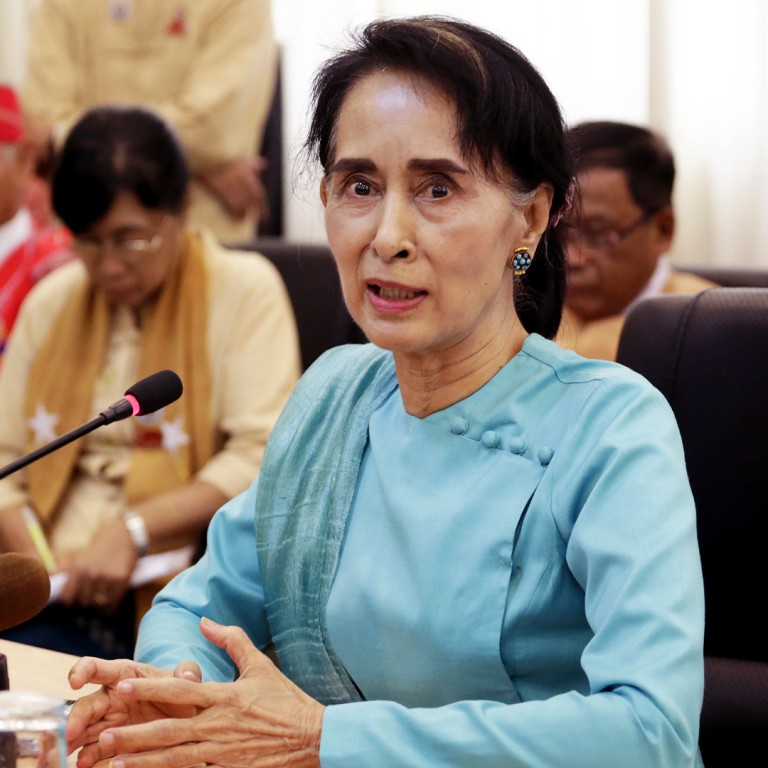
Myanmar's Aung San Suu Kyi is simply being pragmatic
As a human rights icon, former prisoner of conscience and winner of the Nobel Peace Prize, Myanmar's opposition leader Aung San Suu Kyi holds a position of moral authority in her country and beyond.
As a human rights icon, former prisoner of conscience and winner of the Nobel Peace Prize, Myanmar's opposition leader Aung San Suu Kyi holds a position of moral authority in her country and beyond. Understandably, her near silence at the plight of Rohingya Muslims and lack of public mention of jailed Chinese Nobel laureate Liu Xiaobo during a visit to China have been criticised by international admirers. But she is also a politician and as the nation's move towards democracy gathers pace, there is every need to be pragmatic. With landmark elections promised this year, to take a stand on a controversial issue could jeopardise chances of her National League for Democracy party winning seats in parliament and pushing for greater change.
Myanmar's transition from military rule is at a critical juncture. While democratic reforms under President Thein Sein are well advanced, the army remains the strongest political entity. It has to be influenced and supported to further cede power. Suu Kyi knows the risks of losing what has been gained; she has to balance expectations against what is possible.
The UN has called the Rohingya the world's most-persecuted minority. The crisis this year involving thousands fleeing Myanmar's western Rakhine state brought to global attention their years-long struggle for rights in the Buddhist-majority country. No one could be better placed than Suu Kyi to push their cause. In 2012, when accepting the peace prize, 21 years after being awarded it while under house arrest, she said: "Our aim should be to create a world free from the displaced, the homeless and the hopeless, a world of which each and every corner is a true sanctuary where the inhabitants will have the freedom and capacity to live in peace." Frustratingly for activists, she has not spoken out against anti-Rohingya violence, a ban on citizenship and a two-child limit on families.
Nor was there mention after her meetings in Beijing of whether Liu's case was raised. She may have spoken out in the past, but her circumstances are different. Responding to a media question, she used the diplomatic, "We all understand that neighbours have to live in peace and harmony". That does not mean she has set aside principles. Although constitutionally barred from the presidency, she still has to court voters for her party and be diplomatic. At so politically sensitive a time for Myanmar, she has learned that only by being pragmatic is there a chance of changing the country for the better.

